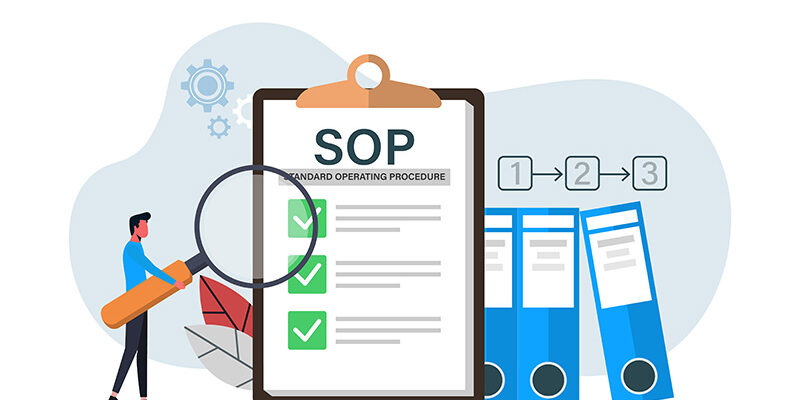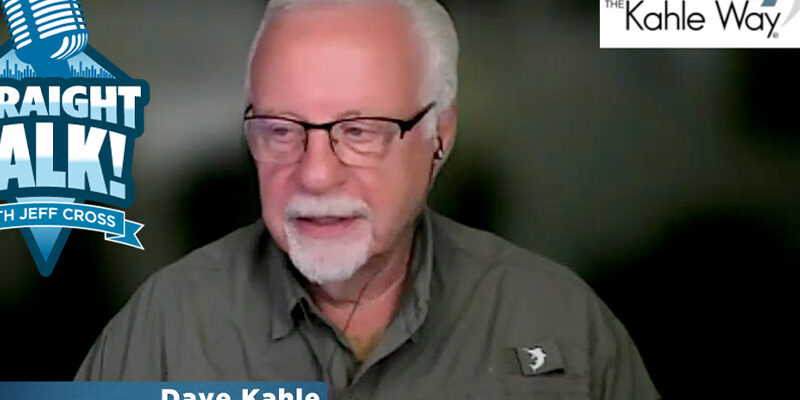The Difference Between SEO and Local SEO—and Which Is Best for Your Business

SEO—search engine optimization—can already be a murky area for business owners, who don’t fully grasp what it is and the importance of what it does.
Now add to the mix LOCAL SEO, and already confusing terms might be even more so.
So, what is local SEO? How does it differ from just SEO? And why should you care about it?
Why is there so much mystery surrounding SEO?
Over my many years in content marketing, I’ve always been disappointed by the tendency of SEO providers to keep what SEO is and how it works a big a secret to business owners. To me, it comes off as fear—manifested as a scarcity mindset—on the part of those SEO providers.
Why all the mystery? I believe that by being somewhat mysterious, SEO providers create more perceived need for their knowledge and expertise. If business owners understood SEO better, some of the curtain would be pulled back on these providers, and, perhaps, their services might not appear to be quite so “magical.”
As such, you’ll see these providers use a lot of SEO jargon, in particular, acronyms—SEO, SERP, PPC, and GBP, just to name a few. I’ll explain all of these in just a moment.
Personally, I find the fear unfounded. In order for business owners to deeply desire any service, they first need to fully understand and appreciate what the service could mean in terms of the success of their businesses. Once SEO is understood, I believe it’s all-the-more desirable.
SEO, once explained, really isn’t difficult to understand. However, understanding it doesn’t necessarily make it easy to achieve. For that reason, business owners aren’t going to be wasting their time working on SEO, and rightly so. They’re still going to leave that task to the experts.
So, to understand both SEO and local SEO, you first need to understand what SEO itself is.
What is SEO?
SEO—search engine optimization—is the act of making a website as easy to find as possible by a user of a search engine (such as Google, Yahoo, or Bing).
Good SEO improves your website’s “rank”—that is to say, where your website shows up on a search engine results page—or SERP.
This is achieved in a variety of ways including (just to name a few): attractive, friendly, easy-to-use visual design; proper use of heads and their head designations (H1, H2, etc.); and the use of well-researched keywords (the words people most likely will use to find your website) in written content.
Why is this so important? Well, you want your future customers and clients to be able to find you online. You want to be able to get your message to that audience. But to do so, you need to drive traffic to your website, where your message resides. Once you get them there, your content can do the rest of the work of converting these leads into sales.
But ah! Getting them there… That’s where SEO comes in.
A website that has made little to no attempt at proper SEO is like a needle in a haystack. The internet is a sea full of competing websites. Unlike a finite location, like a mall or a town’s main street, that has limit on how many stores can exist (and in particular, stores offering your specific goods and services), the Internet’s choices for products and services like yours are endless and limitless.
And yet, in the 21st century world, and even more so now that we’re dealing with a pandemic, your customer or client is most likely hanging out online, as opposed to walking down a commercial avenue or strolling through a mall.
How do you stand out? The answer is SEO.
SEO vs. local SEO—location, location, location
So, what’s local SEO, then?
Borrowing on a phrase that’s so often used in real estate, local SEO is all about location, location, location. Local SEO takes what traditional SEO does but does it much more geographically. It takes into account where your business is located as well as the areas your business serves and looks specifically toward driving local area customers to your business through that information (which includes your website, but it’s not necessarily only your website).
This is usually done in two ways: 1) the use of directory sites and 2) the use of review sites. These two online entities can help users who are in close proximity to your business learn more about you, quickly and easily—without ever necessarily going to your website (although the information provided can take them there as well).
Should your business focus on local SEO over traditional SEO?
So which SEO is right for your business? For cleaning and restoration businesses, it’s really not a matter of which—it’s a matter of both.
It’s important first to note that all business websites need traditional, organic (that is, not paid for) SEO. That’s where you need to begin.
You don’t want your business to be buried by your online competition. You have to help your audience get to your message, and to do that properly, all business websites need traditional, organic SEO to turn your audience into visitors and users of your website.
But does your business also need local SEO? Yes. As a cleaning and restoration company that serves a finite area of people and businesses, you don’t want to ignore the tremendous power local SEO provides in connecting with those potential customers. Local SEO can’t be an afterthought for your business. It’s a must that needs to be addressed.
The value of a Google Business Profile and reviews for local SEO
When thinking about local SEO, think first and foremost about creating a Google Business Profile (formally called Google My Business) listing. A Google Business Profile (GBP) account is like getting a pay-per-click ad for FREE. With the right keywords and optimization, your free GBP account can effectively compete against paid-for Google ads—and WIN.
You’ve seen it at work, if you’ve ever used Google to search for anything. Try it now. Type into Google what you think are keywords for your own business. What would you type if you were looking for the services your business offers? See what comes up.
Most likely, you’ll see a box with at least three listings. If you have a GBP account, you very well might be one of those listings. If you don’t, you won’t. This box is commonly called the GBP “three pack.” As you can see, it’s prominent. It pulls your attention away from online internet search engine ads, also known as pay-per-click (PPC) ads, that appear at the top of the search page results.
Furthermore, you’ll see the added benefit of review ratings. Star ratings and their related reviews are huge, as deciding and motivating factors for your potential customers. If you play your cards right, you can make your business appear as the clear, obvious local choice for your products or services, based solely on your reviews. But for that to happen, reviews can’t be ignored. They have to be properly managed and continuously requested, so that they are timely, relevant, and always revealing of your high quality.
Are online ads necessary for good local SEO?
The answer to this is another question—how badly do you want customers? Ads are always going to support doing that in a bigger way.
Without a doubt, job one is organic SEO. A tremendous amount of SEO can be successfully achieved without paying a cent for ads, as already mentioned.
But for good local SEO, you might want to also consider spending money with a directory provider. A number of companies can give you access to platforms that will place your business on a great number of directories that are designed specifically to pull in local customer traffic and improve your online presence.
Once you’ve fully optimized your GBP and your presence on local directories, as your business scales and grows, you’ll want to at least consider running online ads. This can be achieved either through social media platforms or via search engine PPC ads, but for different reasons according to your specific objectives.
For lead generation, I feel that most companies are better served by PPC and “Local Services” ads from Google—where people are genuinely searching for businesses that give what you’re offering—than by social media ads. But it really depends on who your audience is and where those individuals reside. If your customers are, for example, constantly on Facebook, that might be the better place to reach out to them. All marketing relies on finding the right people by looking for them in the right places. Your job is to identify both so that when you reach out, you’re doing so in the most effective and efficient way.
No—online ads aren’t necessary for good local nor traditional SEO, but they still maintain an important rung on the ladder of your business’ success online. Organic results will only take you so far. At some point, to continue to expand your business, you’ll want to consider paying for ads.
The more you know
Hopefully, you now have a much better understanding of SEO and local SEO, and why you and those who provide your company’s marketing will want to use both to successfully reach more customers for your services. SEO isn’t as mysterious as providers might want you to believe. But it is important, and it can make or break your success online.












